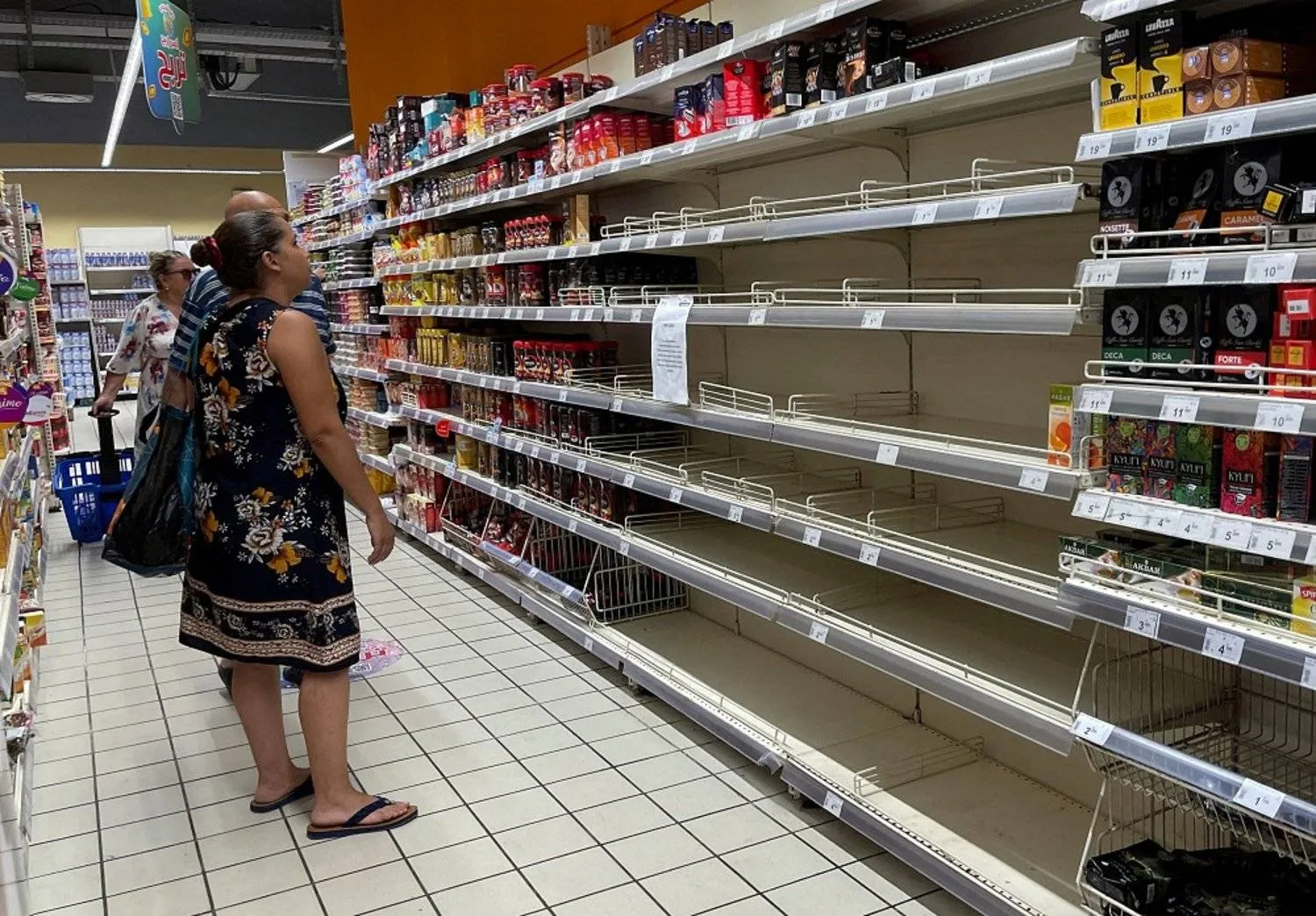Tunisia reached a preliminary deal with the International Monetary Fund a year ago on a $1.9 billion loan program, but 12 months later it has yet to receive any money and seems unwilling to implement the reforms needed to do so.
While analysts say the North African nation can manage without IMF support in the short-term, they are much less confident about its outlook for the years ahead.
Amid hostile rebukes and the rejection of some of the terms from Tunisian President Kais Saied, as well as domestic political turmoil, the country still hasn't secured IMF board approval for the deal - a key step to unlock the funds.
The one-year lag is a record delay between a preliminary deal and the final signoff, according to public data on over 80 cases compiled by Reuters. This compares to the median 55 days it took low- and middle-income countries between the two steps, and exceeds even the long waits of countries like Chad, Zambia and Sri Lanka.
"The lack of political will among Tunisia's government to tackle a long list of necessary reforms is the major stumbling point," James Swanston, senior economist at Capital Economics in London, told Reuters.
Reducing the budget deficit, reforming large state-owned enterprises and devaluing the currency to prevent the central bank from using reserves to support the dinar are among the top tasks the government needs to address, said Swanston.
"Until there is real evidence that Tunisia will tackle these reforms, any deal will not be forthcoming."
An IMF spokesperson did not immediately reply to a request for comment on the current status of Tunisia's program.
Talks on the IMF 48-month arrangement have been in limbo after Saied rejected terms including cutting subsidies and reducing the public wage bill, saying the "diktats" laid down by the international lender were unacceptable.
The World Bank recently cut its Tunisian economic growth forecast to 1.2% from 2.3% for 2023 citing "very uncertain prospects" over debt financing and difficult conditions following a three-year drought that has pushed the government to raise tap water prices and threatened food security.
Despite the challenges, the battered economy could continue without an IMF program in the short-term as "rising reserves and marginal fiscal consolidation have granted Tunisia some additional runway" thanks to a pickup in tourism, said Tellimer analyst Patrick Curran.
Tunisia also received $500 million of fresh funding from Saudi Arabia in July. A $1 billion European Union pledge of support is, however, conditional on Tunisia receiving an IMF program.
The country – the cradle of the Arab spring - has to pay back a 500 million euro bond maturing in October and an 850 million euro note due in February.
"Tunisia can cover the next maturity out of reserves after a good tourist season," said Charlie Robertson, head of macro strategy at London-based FIM Partners.
While those bonds are trading between 87-97 cents on the dollar, bonds maturing between 2025 and 2027 trade between 58.7-66.7 cents - well below the threshold at which debt is widely considered distressed, and indicating concerns over the country's lower capacity for repayment ahead.
Tunisia can nevertheless count on support from some other nations under pressure thanks to its geopolitical and geographic importance, according to analysts.
Italian Prime Minister Giorgia Meloni maintains a close relationship with Tunisia. Record numbers of migrants setting off from the country have landed on Italy's far southern island of Lampedusa.
"Meloni is a staunch supporter of Tunisia because of the migration issue and that gives them more space to delay things,"
said Kaan Nazli, a portfolio manager at asset manager Neuberger Berman.
Meloni has travelled to Tunisia in person to promote progress on the country's IMF program.
Credit agency Fitch is assuming that the program will be approved soon, while international investors harbour doubts over how the country can avoid a default in the medium-term without it.
"Ultimately, Tunisia will have to deliver on the IMF program or it will have severe difficulties with regards to (its) financing situation," Nazli said.









